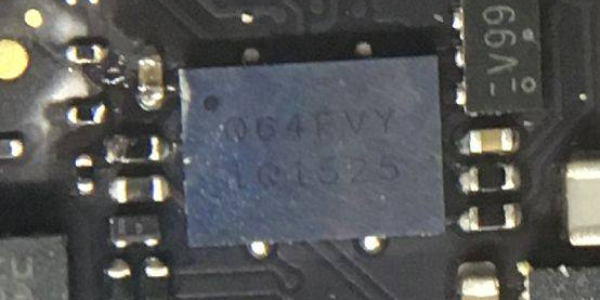FSK (frequency-shift keying) is a digital modulation technique that encodes data by shifting the frequency of a carrier signal between discrete values. FSK decoder ICs are integrated circuits designed to demodulate and decode FSK modulated signals. They are commonly used in applications like RFID systems, remote keyless entry systems, low-power wireless devices etc. Some key features of FSK decoder ICs:
- Demodulate FSK signals and output the decoded digital data
- configurable data rates up to 100 kbps typically
- Low power consumption suitable for battery-powered applications
- On-chip clock recovery circuits eliminating external components
- Digital outputs like UART, SPI etc. for interfacing with MCUs
- Programmable frequency deviation and data rate
Some popular FSK decoder ICs:<h3>MC145026 – On Semiconductor</h3>
- Data rates up to 20 kbps
- UART & Manchester coded digital outputs
- Up to 100 kHz frequency deviation
- Wide supply voltage range of 2.7V to 5.5V
<h3>ADF7023 – Analog Devices</h3>
- Data rates up to 250 kbps
- SPI & NRZ digital outputs
- +/-250 kHz frequency deviation range
- 1.8V to 3.6V supply voltage
<h3>MICRF112 – Microchip</h3>
- Data rates up to 115 kbps
- UART digital output
- +/-64 kHz frequency deviation
- 2.3V to 5.5V supply voltage
<h2>Applications of FSK Decoder ICs</h2>
Some common applications of FSK decoder ICs:<h3>RFID and NFC systems</h3> RFID tags and NFC devices often use FSK modulation to transmit identity data. FSK decoder ICs are used in RFID readers and NFC readers to decode signals from tags/devices. <h3>Wireless alarm systems</h3> Many wireless home alarm systems and sensors use FSK modulation to transmit sensor data wirelessly. The alarm receivers use FSK decoder ICs to extract the alarm data. <h3>Remote keyless entry systems</h3> Many keyfobs for remotely locking/unlocking vehicles use FSK modulation to transmit the control codes securely. FSK decoder ICs in the vehicle extract the key codes to authenticate and perform the requested operation. <h3>Smart metering systems</h3> Utility smart meters often use FSK modulation to transmit usage data wirelessly to data collectors. FSK decoder ICs enable collection and decoding of this meter data. <h3>Low-power IoT devices</h3> FSK decoding ICs are widely used in battery-powered IoT devices like wireless sensors, trackers, monitors etc. to implement low-power wireless connectivity. <h2>How to Choose an FSK Decoder IC?</h2>
Here are some key considerations when selecting an FSK decoder IC for your application:
- Required data rate – Ensure the IC supports your needed FSK data rate
- Frequency deviation range – IC must support your signal’s frequency deviation
- Digital output format – Select IC with compatible output e.g. UART, SPI etc.
- Supply voltage range – IC must operate at your system’s voltage
- Sensitivity and range – More sensitive ICs provide longer operation range
- Power consumption – Important for battery-powered applications
- Operating temperature range – IC must function over required temp range
- Package type – Important for PCB space and design considerations
- Cost – Balance required features and budget constraints
<h2>Designing with an FSK Decoder IC</h2>
Here are some tips for successfully designing with an FSK decoder IC:
- Provide appropriate power supply filtering – Follow reference design guidelines
- Use proper RF layout techniques – Keep traces short, controlled impedances
- Include sensor tuning components – Match antenna impedance for sensitivity
- Follow recommended PCB layout – Keep analog/digital sections separated
- Add ESD protection as needed – Protect sensitive input pins
- Verify digitized output data – Review scope captures during development
- Perform range testing – Validate range vs. expectations
- Implement error checking in software – Detect/correct transmission errors
- Follow all guidelines in datasheet – For supply voltage, frequency, data rates etc.
<h2>Conclusion</h2>
FSK decoder ICs provide a convenient way to implement robust wireless connectivity using FSK modulation in your embedded systems. With their low power consumption and proven reliability, FSK decoder ICs are enabling various wireless applications across consumer, industrial, automotive and IoT markets. By selecting the right IC for your design needs and following best design practices, you can develop high-performance wireless systems optimized for FSK modulation.<h2>Frequently Asked Questions</h2>
<b>Q: What are the key benefits of using an FSK decoder IC?</b>
A: The main benefits are – simplified design (no need to design FSK demodulator), smaller size, lower power consumption compared to discreet solutions, and proven reliable performance.
<b>Q: How do I interface the digital output of an FSK decoder IC with a microcontroller?</b>
A: Most FSK decoder ICs provide digital outputs like UART, SPI etc. that can be conveniently interfaced with standard MCU peripheral modules like UART, SPI to receive the decoded data.
<b>Q: Can I cascade two FSK decoder ICs to double the data rate?</b>
A: No, cascading FSK decoder ICs does not increase data rate. The data rate is limited by the demodulation capability of each IC. For higher data rates, you need to select a single IC with higher rate capability.
<b>Q: How do I determine the right frequency deviation for my application?</b>
A: Consult your system specs to find the frequency deviation. Also, the deviation range supported by the IC must accommodate your deviation for proper decoding.
<b>Q: What external components are required for an FSK decoder IC?</b>
A: Typically resistors, capacitors and a crystal oscillator for the internal clock. An external RF antenna/sensor component may also be needed. Consult the IC’s reference design.
